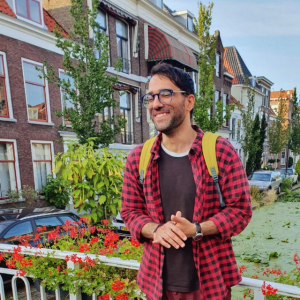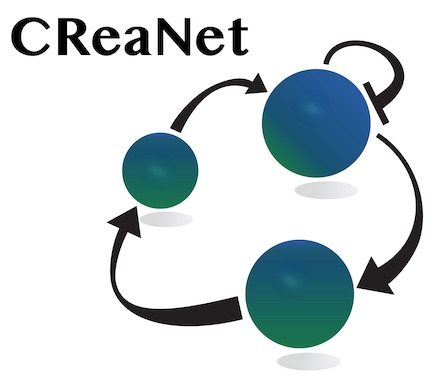
1. Please tell us a little about yourself. Where are you from and what is your research background?
I am Ardeshir, from Iran. I studied Polymer Engineering for my bachelors, which was an interdisciplinary program of Chemical Engineering and Polymer Science, then I gravitated towards the latter a bit. I got a master’s in polymer science.
2. Tell us briefly about the research project you have been doing as a Marie Curie Fellow?
As an ESR I have been studying out-of-equilibrium formation of structures and investigating means of achieving control over this formation in time and space. The process occurs within a chemical reaction network, which is governed by state variables. Using mathematical models, one can get a clear picture of the interplay between these variables.
3. Why did you choose to apply for this particular project?
There were several reasons, of course, the most important one was indeed the fact that this project revolves around my favorite topics in science. Thermodynamics of Fluids, Transport Phenomena, Numerical Modeling, etc. as if it had everything I liked advancing in academia. I had previous experience with studying out-of-equilibrium phenomena and I very much enjoyed that part of my research career, so I decided to give it another shot.
4. As a reasercher, which goals and ambitions do you have for your future career?
Currently, I am considering my career to tend towards data analysis, I wish to go for some experience in industry after I get the Ph.D., but deep down I kind of feel like I will be back to academia after some years.
5. Who is your favorite scientist?
For me, it is either Galileo or Richard Feynman, and obviously for quite separate reasons. I believe we would not know “Science” as it is if it wasn’t for Galileo and Feynman is for sure of the coolest scientists ever lived, a great teacher and an interesting persona.
6. What was your first impression when you arrived in your host country?
It is simply impossible to go to a typical Dutch city and fail to notice the beautiful canals. My first impression was the scenery of the city and the amazing weather J
7. Why is your project important for society?
Apart from developing technologies for medical uses for instance, a lot of my work is around figuring out cellular processes which in turn gives us a better understanding of how living systems or in general life works.
8. Marie Curie fellowship requires a lot of travels, why mobility is important for research?
I firmly believe advancements in science are largely dependent on the synergic effects of the works of different scientists. So, although it might seem a bit tough, especially considering the current situation, the opportunity to put different pieces of work done by different researchers together is quite crucial for gaining a comprehensive understanding of a particular subject.
9. How did you find your passion for chemistry?
Well chemistry is the budget version of playing God and I think the simple act of creation is quite fascinating, I had this fascination since I was a kid and that always pushed me to want to know more. Although, it is a huge field and where I stand now in the realm of chemistry is also very much influenced by what I later learned at the university.
10. Do you have any advice for other young researchers who are considering applying for a Marie Curie fellowship?
I would recommend them to go for it. I mean it has a lot to offer. Apart from having the opportunity to work at different labs and having close collaborations with some of the big names in the field, the trajectory defined by the ITN team with all the workshops and conferences is extremely helping to find and be the researcher one seeks to be.
